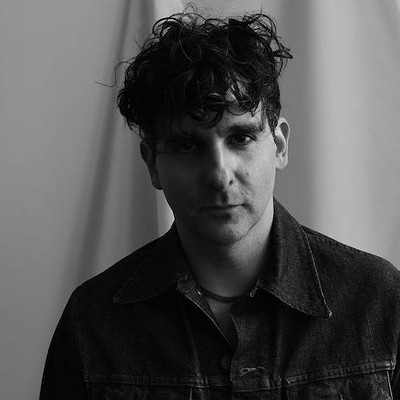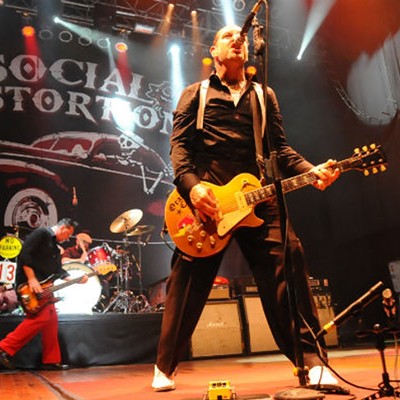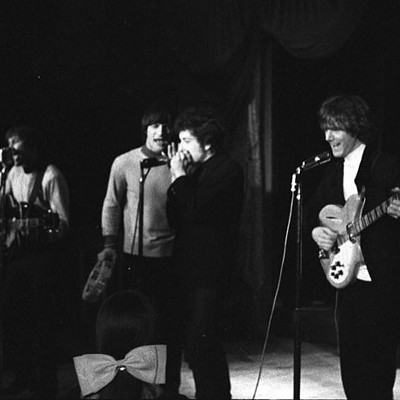A new PBS special takes an in-depth look at hip-hop's taboo topics
Rampant violence, homophobia, and misogyny have been prevalent for quite some time in hip-hop — even KRS-One once said, "Roxanne Shante is only good for steady fucking" — yet, curiously, no one's really bothered to frame these issues together in a social context until Byron Hurt's Hip-Hop: Beyond Beats and Rhymes. The documentary, which airs Tuesday, February 20 on PBS, qualifies as recommended viewing for all hip-hop fans, and just about everyone else — especially parents and their kids.

After they jump, find out what made Busta Rhymes so upset he had to leave the room.

At BET's Spring Bling in Daytona Beach, Hurt films freestyle ciphers, then ponders their overly violent and �ber-macho lyrical depictions, later contrasting that with an interview with three drag queens who relate that seemingly thugged-out dudes pursue them sexually on the down-low. At Atlanta's Spelman College, the women who protested Nelly's bone-marrow drive on the basis of his infamous "Tip Drill" video are interviewed, along with professor Jelani H. Cobb. In a New York studio, rapper Busta Rhymes is asked directly about his feelings on gay rappers. Busta gets agitated, refuses to answer, and leaves the room. Hurt goes so far as to discuss homophobia and homoeroticism with ex-Vibe editor Emil Wilbekin and Deepdickollective's Tim'm West, alternated with shirtless, hypermasculine images of 50 Cent and LL Cool J.
Unintentional irony is unavoidable. A scantily clad female Spring Blinger is asked about the objectification of women while two unidentified men with video cameras zoom in on her ass from behind. A white dude in a pickup truck says he identifies strongly with rap music, then uses the non-PC term "colored people." A black BET executive completely avoids issues of questionable content, stating, "We just play the videos we are given." Rapper J. Hood declares, "Some women is bitches," followed by a female who insists misogynist rappers aren't referring to her personally, even as other women are shown being groped and fondled against their will. And hip-hop mogul Russell Simmons says he tasted Nelly's Pimp Juice drink and liked it, then states, "We have to challenge sexism as a whole."
Unintentional irony is unavoidable.
Amidst a soundtrack that includes N.W.A.'s "A Bitch Iz a Bitch" and 50 Cent's "Many Men," the usual "conscious hip-hop" suspects — Chuck D, Michael Eric Dyson, Talib Kweli — offer relevant, if somewhat predictable, arguments against corporate commodification. "It's all systematic," Chuck says. Powerful white men "don't want to hear critiques of the white male patriarchy," Dyson adds. Meanwhile, video clips from D.W. Griffith's 1915 film Birth of a Nation provide historical context, hinting at how strongly racial stereotypes are embedded within our collective psyche.
Yet in addition to institutionalized racism, the film suggests internalized negativity is equally to blame for hip-hop's contradictions. Rapper Jadakiss casually discusses how desensitized folks have become to graphic, somewhat exaggerated, accounts of violence, while the Clipse tellingly look away when asked directly if their music reinforces stereotypical perceptions of young black males.
Even so, Hip-Hop: Beyond Beats and Rhymes comes off as a love letter to hip-hop in spite of its pointed critique. As the director explained, "I don't scapegoat hip-hop. The same things you see in hip-hop, you can see all over." It's unfair, he says, "to just call hip-hop out," even with all its seeming contradictions, ignorant attitudes, and lack of relevant dialogue on a widespread level.
Thankfully, Hurt doesn't make the mistake hip-hop outsiders and the mainstream media have — framing the culture within a vacuum. Instead, he demonstrates how stereotypes of violence, masculinity, and homophobia are tied to American pop culture and even politics, showing ex-Carmel Mayor Clint Eastwood as brutal supercop Dirty Harry, draft dodger-turned-President George W. Bush frontin' in a flight suit, and Governator Ahnuld declaring his opponents "economic girly-men."
The conclusion Hurt comes to is a simple one: "Hip-hop is Americana." That might seem like an anticlimactic ending; however, the issues raised stay with the viewer long after the program is over. Compelling doesn't begin to describe Hip-Hop: Beyond Beats and Rhymes. Truly, this is must-see TV. - Eric K. Arnold
Hip-Hop: Beyond Beats and Rhymes airs locally on PBS, channel 8, on Tuesday, February 20, at 1o p.m.





